Pet birds and parrots are curious by nature, and their inquisitive behaviour and desire to chew and explore household items can be a cause for concern. There are many household substances and products that our feathered friends are particularly sensitive to, some of which can be life-threatening if consumed, inhaled or chewed.
There are several reasons for a bird’s sensitivity to everyday household items, including their small body size, fast metabolism, and the hyper-efficient avian respiratory system. Knowing what these potential dangers are will provide peace of mind and help you create a safe living environment for your bird.
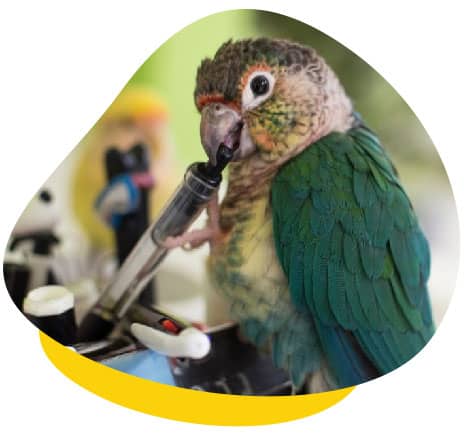
Heavy Metal Toxicity
Lead and zinc poisoning are the two most common heavy metal toxicities seen in bird patients. These two materials are also frequently found in and around the home environment.
Lead Toxicity
People are often unaware of just how many household objects still contain lead. That is, until their curious parrot starts chewing items around the house and becomes unwell.
Lead toxicity in birds usually requires the bird to ingest the lead. This is because lead can be readily absorbed in acidic environments like the proventriculus (first stomach). From here, the lead is absorbed and transported by the blood into the kidney, bones and nervous tissue like the brain.
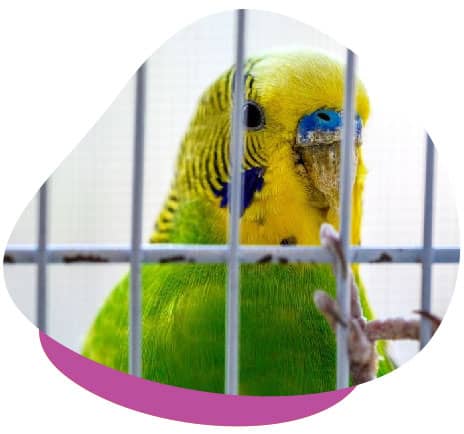
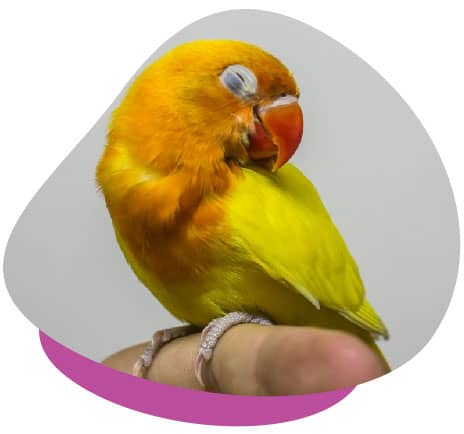
Clinical Signs of Lead Toxicity Include:
- Depression
- Increased urination volume
- Ataxia (wobbly or weak on their legs)
- Seizures
- Other neurological signs (head twitching, rolling of the head from side to side)
- Anaemia (low red blood cell count)
- Vomiting
- Diarrhoea
An affected bird may have one or all of these symptoms. It will depend on how much lead was ingested, how long it has been in the bird and where the lead has been distributed in the body.
If left untreated, lead toxicity can cause death in birds, it is important to contact your nearest avian veterinarian if you notice any of these symptoms at home.
Zinc Toxicity
Zinc is commonly found in the environment, particularly to treat iron cages and wire in the process known as galvanisation. Zinc is most toxic in newly galvanised materials and thus has been nicknamed ‘new-wire disease’ in birds.
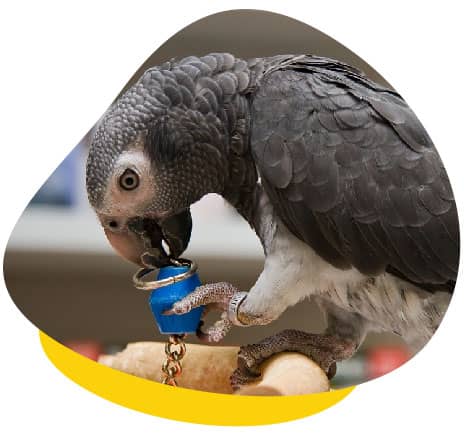
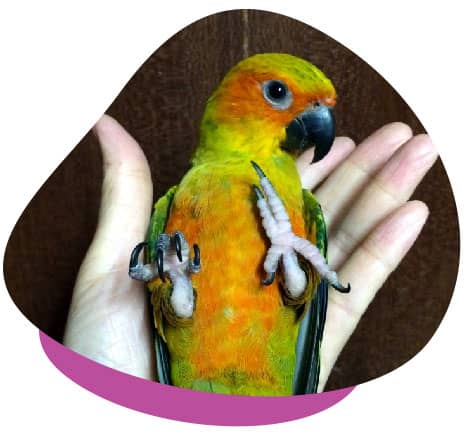
What Are the Symptoms of Zinc Toxicity in Birds?
The symptoms of zinc toxicity vary considerably. Some affected birds show gastrointestinal signs including regurgitation and vomiting, whilst others drink more often and produce more urine than usual.
These are only a few of the signs to watch out for as the symptoms can vary a lot. Zinc can also cause significant inflammation to the pancreas (causing pancreatitis), which leads to very painful, lethargic-looking birds.
Polytetrafluoroethylene (Ptfe) – Non-stick Cooking Pans
PTFE is a common compound used to coat the surface of cookware to make them ‘non-stick’ and is also sometimes used in modern self-cleaning ovens. It is very common in households, and unfortunately, is an acute and fatal toxin to birds when it becomes overheated.
Birds are very susceptible to air-born toxins, and it causes rapid changes to the respiratory and cardiac systems. The best way to avoid PTFE toxicity in birds is to use PTFE alternatives, such as silicone or ceramics. Unfortunately, affected birds die in minutes, well before they reach their closest veterinarian.
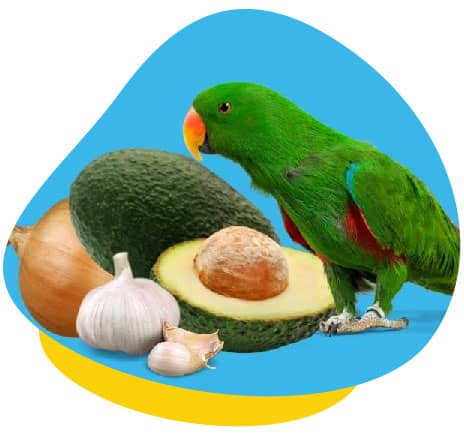
Avocado
It is thought that all avocado is toxic to birds; but the closer the flesh is to the seed, the more toxic it is. Some cultivars of fruit have higher levels of persin; the substance that causes toxicity and are therefore significantly more toxic.
Avocado can cause acute toxicity and even death in affected birds. Avocadoes can cause changes to the heart that can lead to lethargy, excess fluid in the skin (oedema) coughing and difficulty breathing.
Onion and Garlic
It is not widely understood that onion and garlic can be toxic to birds. Very small amounts of these foods are not generally toxic, but there are reports that a ¼ of a garlic clove can be fatal to parrots. Onion and garlic cause oxidative damage to tissues, this leads to the destruction of red blood cells and secondary injury to the kidneys. Some birds will also develop changes to their heart.
Overall, birds that develop toxicity from ingestion garlic and onions will present as weak and lethargic and will need supportive care by your local veterinarian to try to prevent long-term damage.
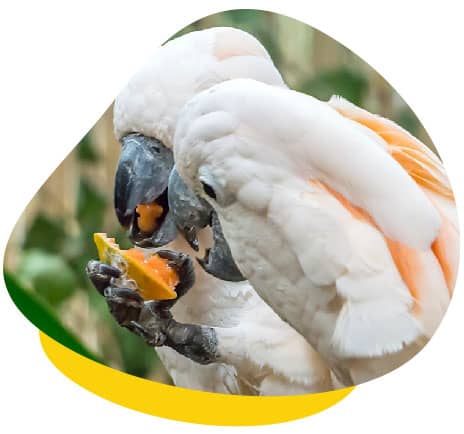
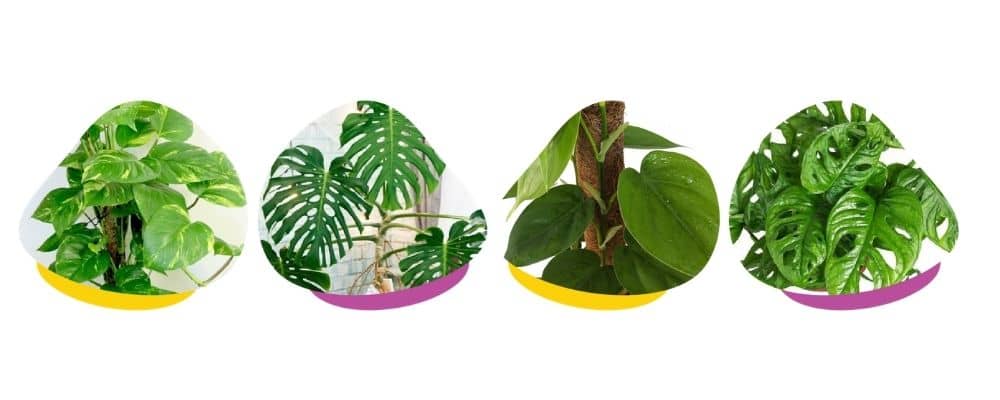
Household Plants
Many household plants are a source of toxicity in birds. There are too many to list in this document, but some of the most common toxicities seen clinically arise from the philodendron family.
Symptoms of exposure include; oral irritation, pain and swelling of mouth, tongue and lips, excessive drooling, vomiting, and difficulty swallowing. This is because of calcium oxalate crystals in the plant that become embedded in the tongue and cause significant pain and inflammation to your pet parrot. These toxicities should be treated by your avian vet to prevent the bird from becoming inappetant and anorexic.
Below is a list of some other common household items that are toxic and potentially life-threatening to birds. Eliminating the use of these items or ensuring that they are out of reach will create a safe, toxic-free environment for your feathered friend.
Other common household products that are toxic to birds:
| Bleach | Fumes from Teflon cooking pans |
| Oven cleaners | Incense |
| Carpet fresheners | Matches |
| Plug-in air fresheners | Cigarettes and cigarette smoke |
| Snail bait | Medicines for humans and other pets |
| Rat poison | Batteries |
| Insecticides | Electrical leads |
| Linoleum | Lead-light ornaments |
If you’re concerned that your bird has been consumed, inhaled or chewed anything that may be toxic or they’re showing signs of toxicity, contact your local Unusual Pet Vets team immediately.

